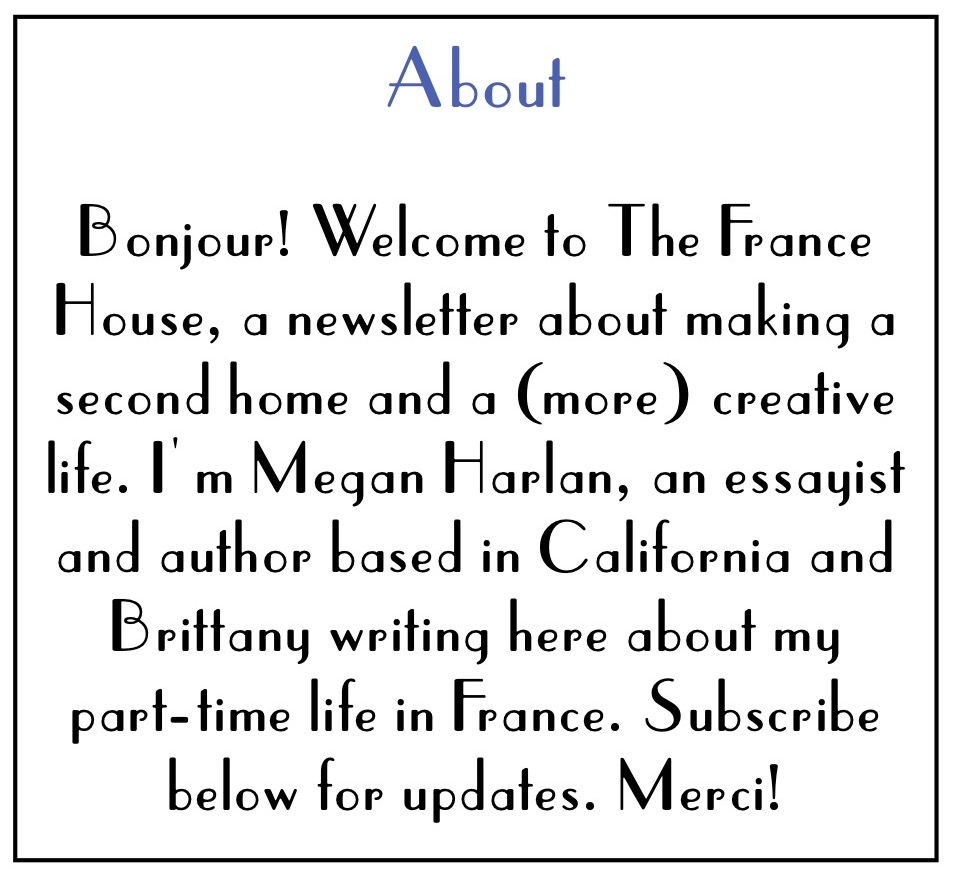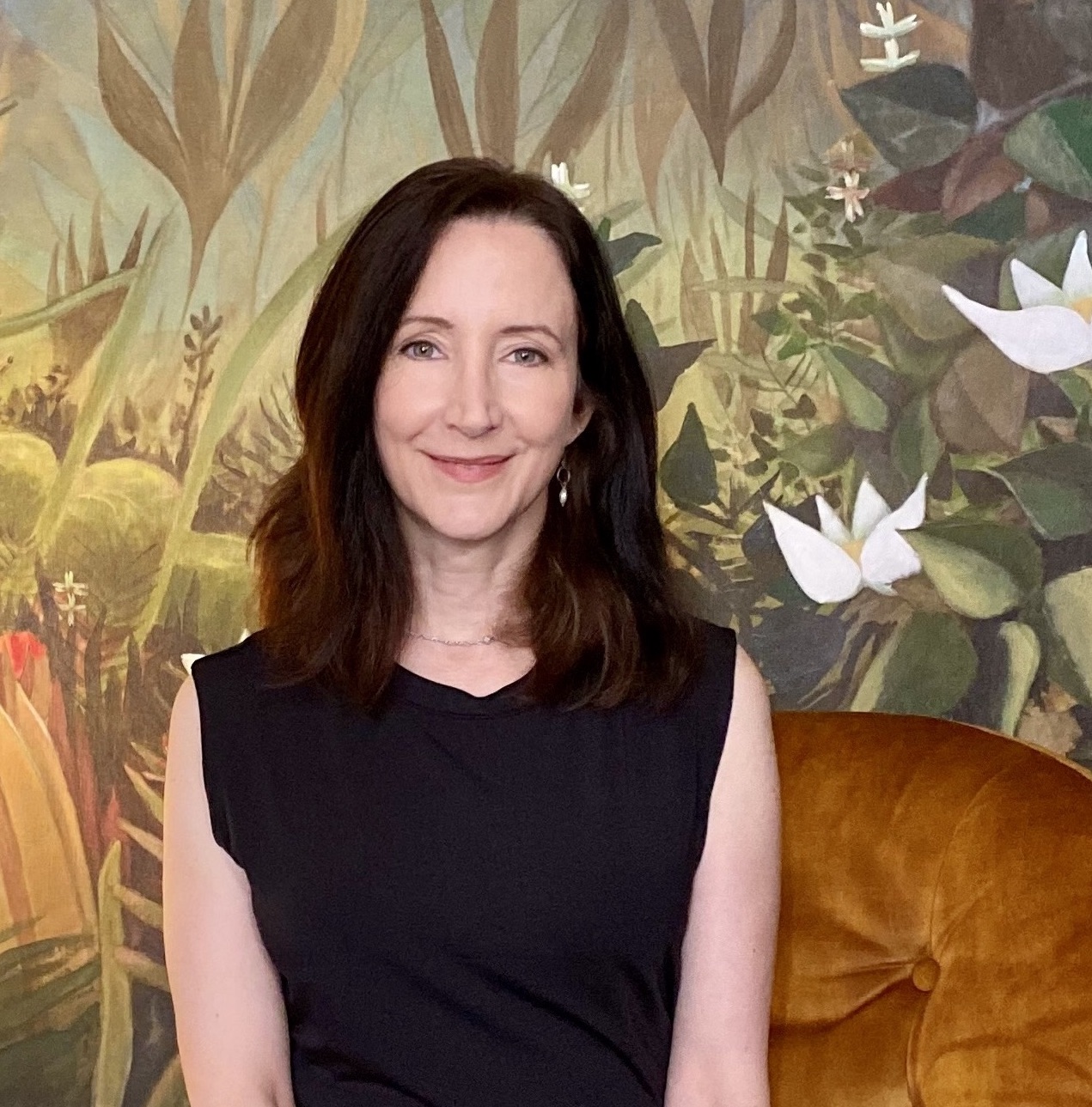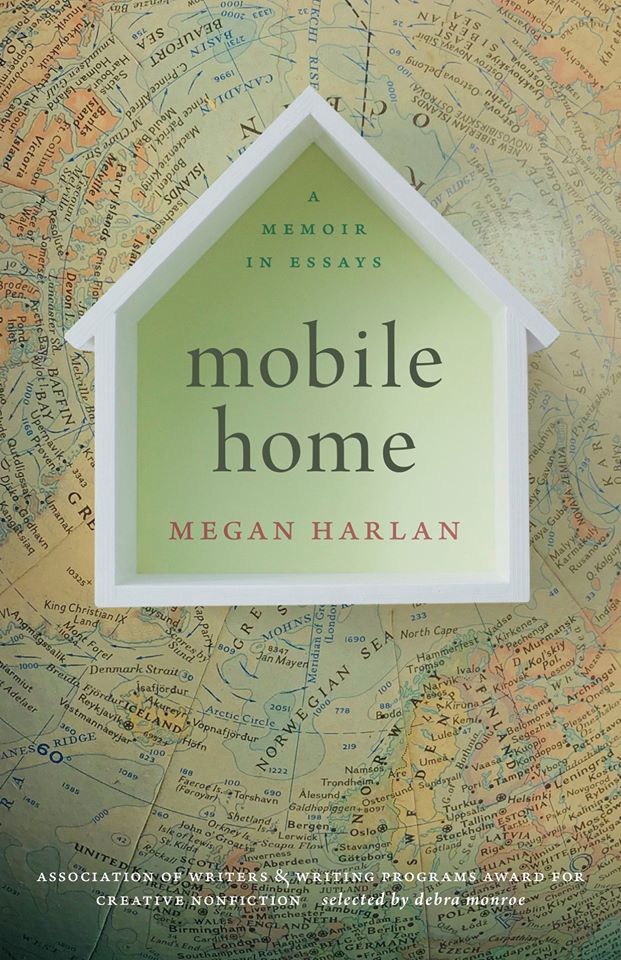On Bécherel, a French “city of books,” and the spell cast by reading.
By Megan Harlan
Once upon a time—1981 to be exact—an enterprising Welshman named Richard Booth opened a bookstore in the former firehouse of Hay-on-Wye, a Welsh village that had been losing its population to cities for decades. Seeking to create a homegrown industry involving Wales’s most renowned native art—literature—Booth stocked the bookstore with entire stacks from American libraries shuttered in the 1970s and being sold for next to nothing. As other bookstores opened in Hay—today they number about two dozen—Booth launched an international literary festival to extraordinary success, attracting esteemed authors and hundreds of thousands of visitors a year. Hay-on-Wye became the world’s first “Town of Books,” now an official designation in the United Kingdom. (In a fantastical publicity stunt, Booth once declared Hay a sovereign nation, himself “King,” and began issuing “passports” to visitors—all the stuff of a movie I’d love to see.) A second “Town of Books” soon emerged in Belgium, and a third in France: Bécherel, a thousand-year-old village atop eastern Brittany’s highest peak, and a quick drive from my home in Dinan.
As a literary magnet, Bécherel’s origin story as France’s first Cité du Livre—City of Books, officially so since 1989—is just as deliberate as Hay-on-Wye’s, though one spearheaded by a resourceful group of locals seeking to stem their region’s “desertification.” This diverse group—teachers and organic farmers, a midwife and a psychoanalyst—invited vintage booksellers to open shop in Bécherel’s pretty half-timbered and stone buildings, then mostly deserted and very inexpensive. To everyone’s surprise and delight, the venture proved a resounding success. Today, Bécherel’s population is stable at around 650, thanks to its thirteen unique bookstores, each with a distinctive theme, style, ambiance—and, sometimes, cat. Ateliers and galleries of print art, calligraphy, and book-making fill storefronts alongside cafés and crêperies, and the town hosts book fairs and literary festivals throughout the year.

Olympe, house cat at Abraxas-Libris’s main storefront
I’ve been to Bécherel twice, both on brilliantly sunny summer days when the town was gently bustling with visitors. And both times while wandering the town’s steep lanes and labyrinths of book shelves, I’ve been struck by an eerie but by no means unpleasant sensation: That I have somehow fallen off the map; that time has slowed, become sticky, has maybe even stopped; that I’ve entered a kind of Lotus-land of book-browsing. In Bécherel, it really feels like something’s in the air—a denser but clearer atmosphere that revives my desire and capacity for reading (real reading: long-distance, on paper). I find myself buying French and English-language used books by the armful, with a heady sense of literary discovery I haven’t felt since I was very young. The town is sleepy, yes; but for this book-lover, restorative too, so much so that it’s hard to leave.
And so I started calling Bécherel the Land of the Lotus-Readers.
I first got lost in L’Autre Sommeil—”The Other Sleep”—a brilliantly curated, très cool little bookstore specializing in contemporary art books by European publishers and some rare literary titles, including early editions of works by Paul Éluard, Simone Weil, and Albert Camus.

L’Autre Sommeil, a perfect second-hand bookshop

L’Autre Sommeil takes its name from a 1931 novel by gay American writer and French expat Julien Green
Nearby, we stopped for coffees, pastries, and a book on Breton culture at Librairie Ulysse L’Ouest’s sidewalk terrace. (As students of French know, librairie means bookstore, not library—an example of the language’s many sneaky faux amis, or false friends, for English-speakers.)

a café, bookstore, tea-room, and boutique

one of several indoor seating areas
Bécherel’s largest bookstore, Abraxas-Libris, is really three storefronts, together offering some 70,000 books. The main store is massive, rambling over a dozen rooms:

Abraxas-Libris’s cheerful, unassuming entry

history section in the front room
A test: Does this nook look like a complete mess, or an opportunity for serendipity and discovery?

Correct answer: both.

an antiquarian room (with American teenager)
Up the road is Abraxas-Libris’s paperback outlet, where we picked up a stack of Livre de Poche, Gallimard, and Penguin books—including several P.G. Wodehouses:

busy but not crowded streets

man searching for the English-language section
Most bookstores line the historical market square, Place des Anciennes Halles, like the charming La Souris des Champs, which specializes in books on gastronomy and gardening, as well as petites brocantes—decorative home items:

La Souris des Champs, or The Country Mouse, on a gorgeous day
The obvious, half-true, but Eeyore thing to say that is that bookstores are dinosaurs, dying “businesses” from a past era, and not long for this world. The blessedly contrarian French seem to know better. Bookstores are vital cultural nerve centers, keeping alive our belief systems in the value of and pleasures afforded by the written word—and the printed one. We may think screens are just fine for reading—I often pretend to, since I’m about as screen-addicted as anyone else my generation (X). But most of us know full well, if intuitively, that they are not the best way to read. (Studies corroborate this: retention, comprehension, and enjoyment all dwindle when we read on a screen versus paper.)
In fact, Bécherel was an early organizer and proponent of the Digital Detox Weekend, as we learned at the town’s sleek visitor’s center, Maison du Livre. It features exhibitions on the city’s history: Once filled with textile arts (Bécherel long produced some of Brittany’s finest linens), it now trades in printed text arts.

Maison du Livre

a leather-bound parish book as big as a saddle from the 19th century
This tiny hilltop “city”—a Petite Cité de Caractère—floats above the Breton landscape’s intense greenery, an island-in-the-sky topography that lends Bécherel its world-away feeling. And maybe, too, the outsized presence of some 400,000 books tucked into its medieval core. While I didn’t “digitally detox” either time I was in Bécherel, the spell the place cast felt real, gently renewing one of the greatest loves of my life: to forget the world and lose myself in a book.

a Bécherel purchase, and catnip for essayists like me: Montaigne in his own language










